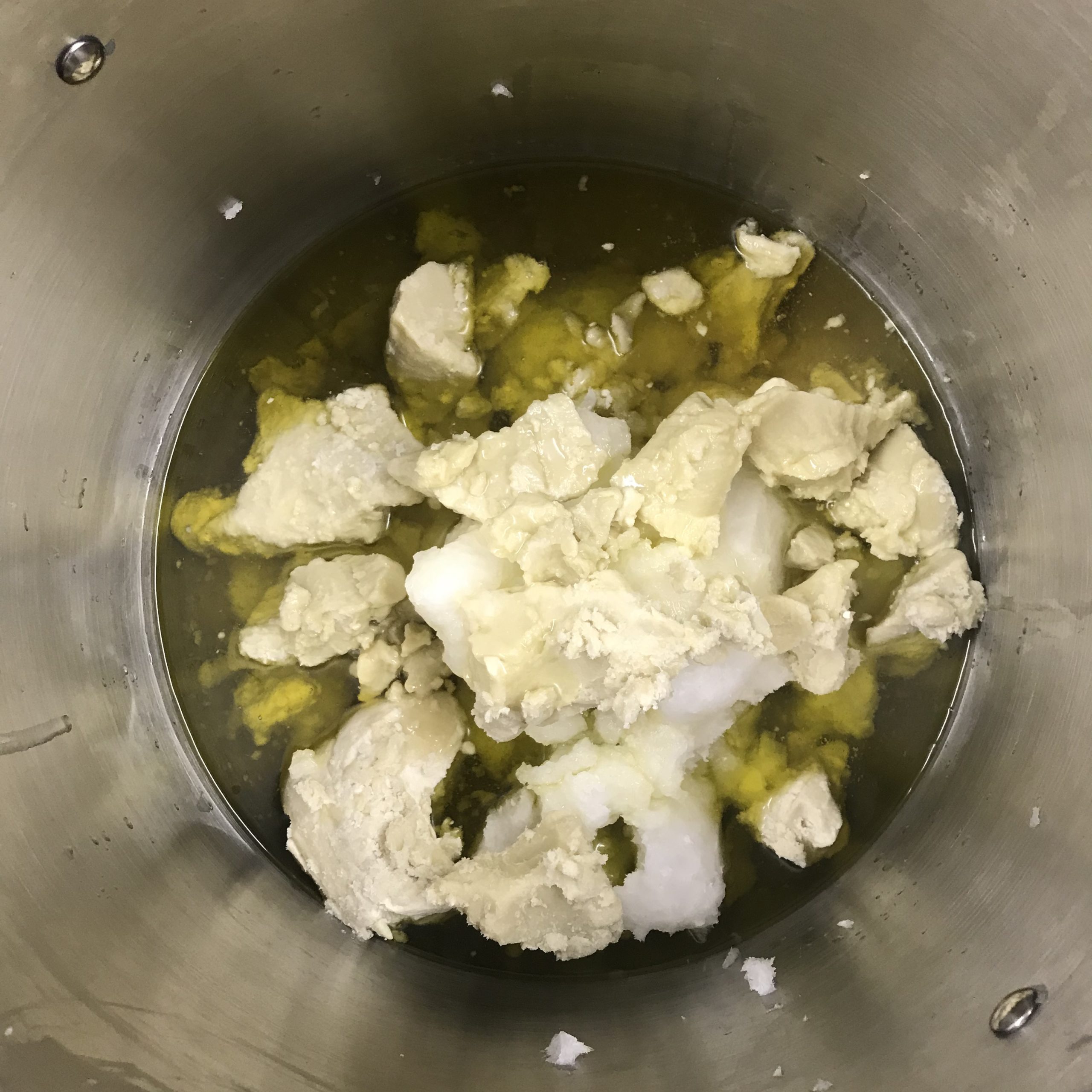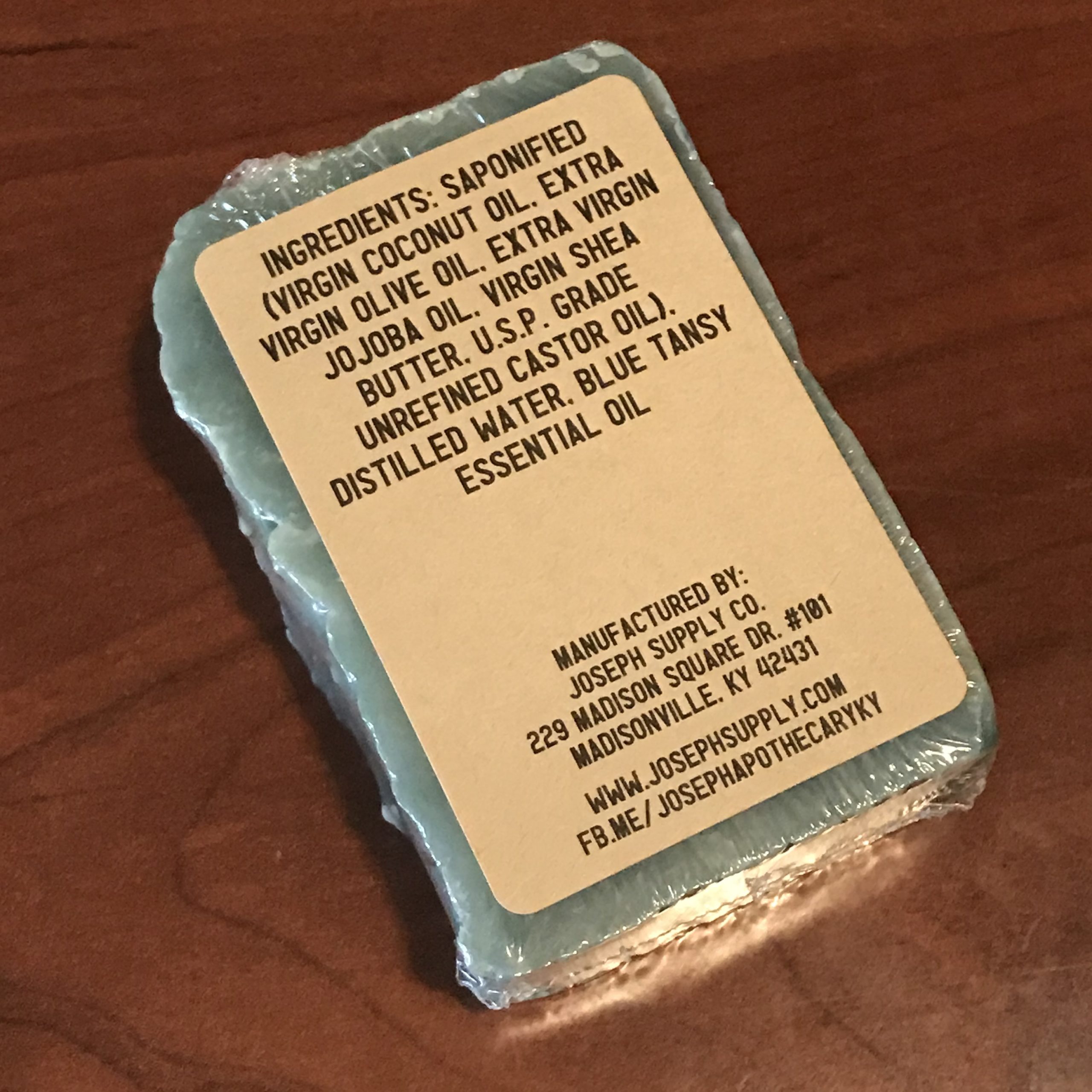This Is What’s In Our Soap

• Virgin Coconut Oil – which has not been refined, deodorized, and bleached by harsh chemicals!
• Extra Virgin Olive Oil – First cold pressing, organic, imported from Italy
• Extra Virgin Jojoba Oil – Cold pressed, unrefined
• Virgin Shea Butter – Certified organic; imported from Burkina Faso, Africa, it is extracted from the Shea nut and left completely unrefined
• Castor Oil – Expeller pressed from the seeds, unrefined. USP Grade (United States Pharmacopeia)
• Distilled Water – Pure, safe, soft water
• Safe, natural color – such as french green clay, red sandalwood powder, and pumpkin.
• Essential oils – Acquired from trusted wholesalers; used in safe amounts in accordance with IFRA standards.
Sodium Hydroxide (Lye) – We use sodium hydroxide to saponify the oils and butters, but our recipe is carefully calculated so that no lye ever remains in a finished bar of soap. If it’s not made with lye, it’s not really soap!
See the FDA’s Frequently Asked Questions on Soap
“How are traditional soaps and synthetic detergents different?
Ordinary soap is made by combining fats or oils and an alkali, such as lye. The fats and oils, which may be from animal, vegetable, or mineral sources, are degraded into free fatty acids, which then combine with the alkali to form crude soap. The lye reacts with the oils, turning what starts out as liquid into blocks of soap. When made properly, no lye remains in the finished product. In the past, people commonly made their own soap using animal fats and lye that had been extracted from wood ashes.
Today there are very few true soaps on the market. Most body cleansers, both liquid and solid, are actually synthetic detergent products. Detergent cleansers are popular because they make suds easily in water and don’t form gummy deposits. Some of these detergent products are actually marketed as “soap” but are not true soap according to the regulatory definition of the word.”

